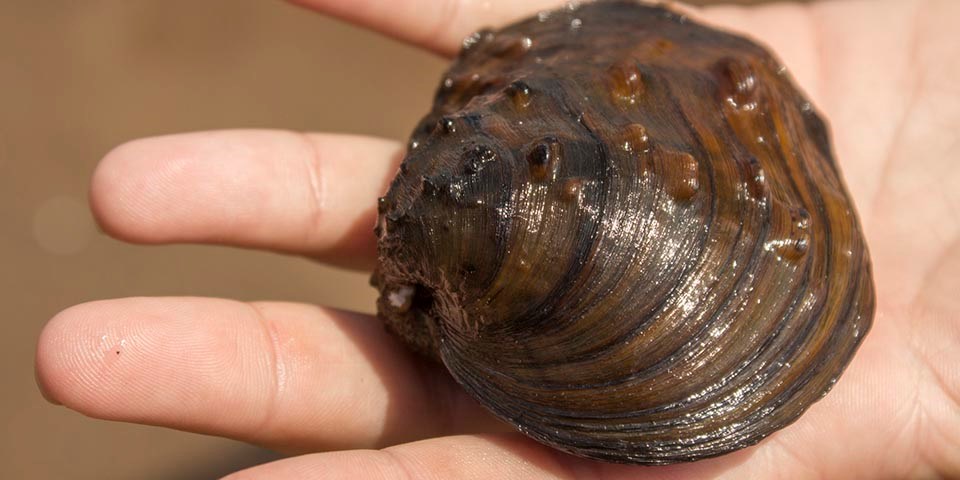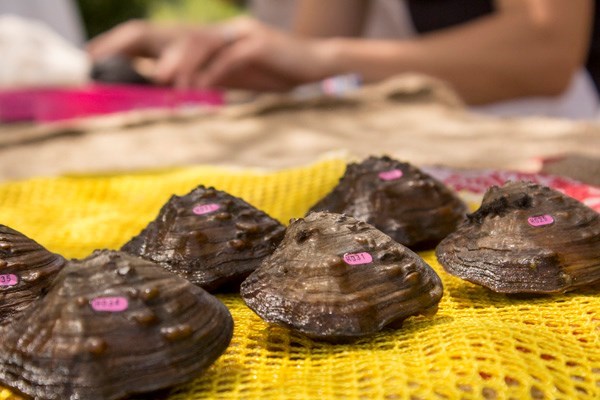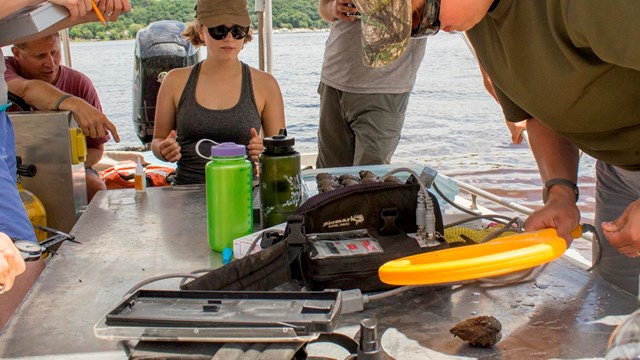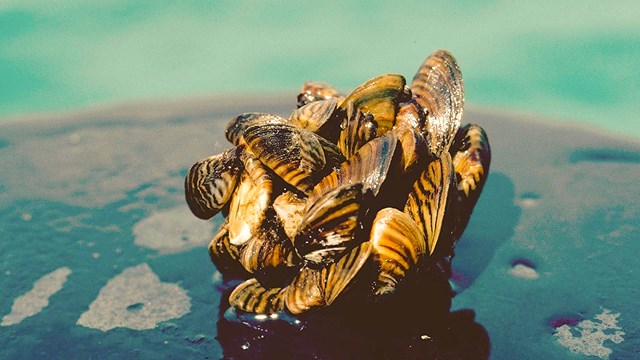
NPS/Rupp The St. Croix National Scenic Riverway is home to more than 40 species of freshwater mussels--one of the greatest assemblages of these fascinating and sensitive aquatic organisms in the United States. A rare example of an intact river-dependent group of animals, all of the mussel species that existed in the corridor before European settlement are present here today.
Visit our keyboard shortcuts docs for details
Join Ranger Liz on an exhibit tour of the Riverway's freshwater mussels. What is a freshwater mussel?Although looking at mussels might seem about as exciting as looking at rocks, they are actually amazing animals with many secrets yet to be learned! Mussel Life CycleMost species of freshwater mussel spend the first 1-3 months of their lives living on the gills or fins of a fish. The tiny juvenile mussels, called glochidia, use nutrients in the fish’s blood to develop their internal organs. When the juveniles fall off, the mussels will grow into adults if they land on a suitable area of the river bottom. Some species live for 80 years or more. 
NPS/Van Tatenhove
Female mussels need to find a fish to carry their glochidia, (baby mussels) for a few weeks. Then the young can survive on their own and will drop to the river bottom. Different mussel species use different methods to attract the fish and some are very picky as to what kind of fish they want to attract. Watch some videos of different mussels trying to attract a fish.

NPS/Rupp Riverway RefugeThe St. Croix and Namekagon rivers are home to these freshwater organisms because of the variety of underwater habitats like boulder fields, gravel beds, sand bars, and mucky backwaters. The requirement of specific host fish, competition from exotic species and their need for free flowing, unpolluted rivers has resulted in the endangerment and extinction of many mussel species. Today, almost two-thirds of all mussel species in the United States are threatened, endangered, or already extinct.In order to protect the federally endangered species and the numerous state threatened species, it is illegal to take any live mussel or empty mussel shell from the St. Croix and Namekagon rivers. Even moving a mussel is prohibited because they can suffocate if you place them back into the sand upside down! 
Winged Mapleleaf Mussel’s Return
US Fish and Wildlife's efforts to bolster populations of endangered winged mapleleaf mussels. 
10 things about zebra mussels
10 things you should know about the invasive zebra mussel |
Last updated: August 15, 2021

